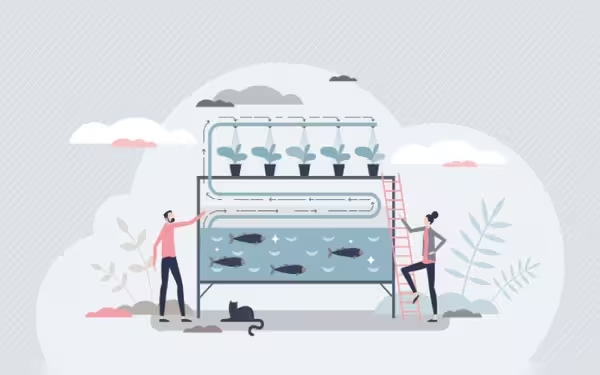Saturday, November 16, 2024 08:54 PM
Shrimp Farming Initiative in Pakistan: Transforming Unproductive Lands
- Punjab expands shrimp farming from 100 to 100,000 acres.
- Targeting $1 billion in annual shrimp exports.
- Need for comprehensive strategy and private sector engagement.
 Image Credits: dawn
Image Credits: dawnPunjab's shrimp farming initiative aims to utilize unproductive lands, targeting $1 billion in annual exports and boosting Pakistan's economy.
In recent years, shrimp farming has emerged as a promising avenue for economic growth in Pakistan, particularly in regions with unproductive saline lands. The Punjab Government has taken a significant step by expanding its pilot shrimp farming initiative from 100 acres to a staggering 100,000 acres. This ambitious plan aims to tap into the global shrimp market, which is valued at $40 billion, with a target of generating $1 billion in annual exports. This transformation is crucial for Pakistan's aquaculture sector, which has the potential to create jobs, enhance food security, and boost exports.
Despite having abundant brackish water resources and favorable climatic conditions, Pakistan's shrimp farming industry is still in its infancy. Currently, the country’s shrimp exports stand at approximately $78 million, a stark contrast to India, which captures around $5 billion of the global market share. The coastal regions of Balochistan and Sindh, along with Punjab, are home to millions of acres of saline lands that could be utilized for large-scale shrimp farming. However, to realize this potential, a comprehensive strategy and enabling policies are essential.
For decades, Pakistan's agricultural policy has focused on traditional field crops, which has served the nation well in the past. However, with challenges such as population growth, shrinking land availability, and dwindling water resources, it is time for a shift towards non-traditional products like shrimp farming. The agriculture sector, which employs 37% of the workforce, is nearing its capacity for job creation due to increasing mechanization and stagnant land expansion. Therefore, it is imperative to explore non-traditional avenues to provide employment for the approximately 3 million youths entering the job market each year.
Previous government initiatives aimed at promoting non-traditional products, such as olive plantations and floriculture, have largely been production-centered, neglecting the vital upstream and downstream segments of the value chain. This oversight has hindered value addition and export marketing, which are crucial for large-scale expansion. The government’s approach has two significant flaws: first, the agricultural value chain is fragmented across multiple departments, leading to standalone projects that lack collaboration. Second, the assumption that increased production will automatically attract private sector investment has proven misguided, as investors require assurance of scale and reasonable returns.
Farmers face numerous challenges due to underdeveloped value chains, including difficulties in procuring cost-effective inputs and selling their produce at fair prices. This often leads them to abandon shrimp farming in favor of other options, undermining government efforts. Despite various interventions, Pakistan has yet to establish a single hatchery for shrimp farming, forcing farmers to import seed from countries like Thailand and Vietnam. Additionally, the lack of local feed production and expertise in shrimp farming operations further complicates the situation, as farmers must rely on expensive foreign consultants.
Moreover, the absence of a comprehensive cold chain and inadequate processing facilities compliant with international food safety standards pose additional hurdles. To successfully scale up shrimp farming, the government must provide support to value chain players and help establish export linkages for fresh, canned, and frozen shrimp.
To turn the pilot project into a commercial success, the Punjab government must learn from past mistakes and adopt a holistic approach that develops all segments of the value chain simultaneously. Engaging the private sector through strategic incentives and implementing key interventions under a public-private partnership model will be crucial. It is essential for all relevant departments and ministries to collaborate as active partners rather than mere facilitators.
While the potential for shrimp farming in Pakistan is immense, realizing this potential requires a concerted effort from the government, private sector, and farmers alike. By fostering collaboration and focusing on value chain development, Pakistan can transform its aquaculture landscape, create jobs, and significantly boost its economy. The success of this initiative could pave the way for a more sustainable and prosperous future for the country.













